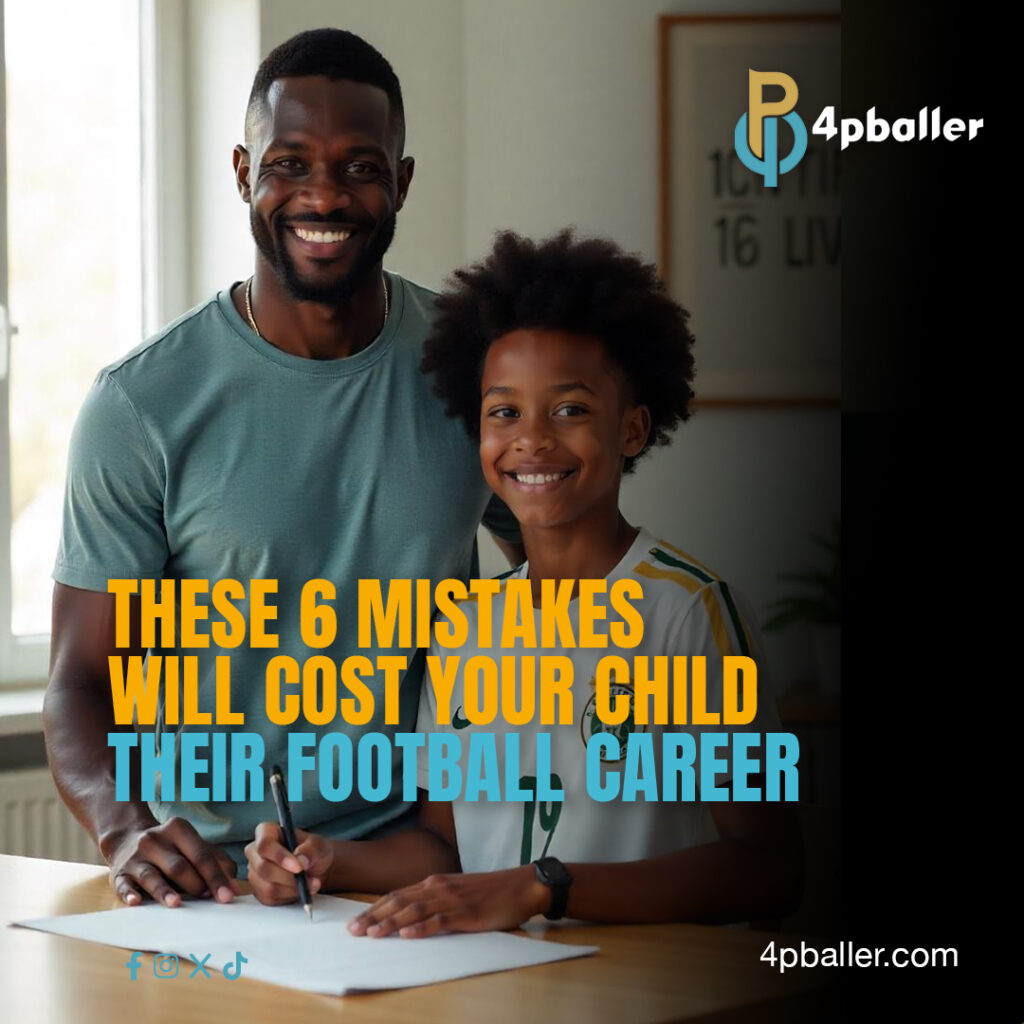Imagine your child finally getting that call from a prestigious football academy their talent has paid off! But beneath the excitement lies a maze of contract details that could make or break their future career. As parents, understanding these contracts isn’t just helpful it’s essential for protecting your young footballer’s dreams.
Why Parents Need to Be Involved The football industry can be overwhelming, especially for young players caught up in the excitement of their first opportunity. According to the Professional Footballers’ Association (PFA), parents play a crucial role in contract negotiations. You bring the maturity and life experience needed to spot potential issues that your enthusiastic young athlete might miss.
Let’s explore six critical contract mistakes parents should watch out for when their child enters the football world:
- The Image Rights Trap Think of image rights like your child’s digital identity. When your young star scores that spectacular goal, their celebration might end up on social media, game footage, or even advertising materials. According to FIFPro, the global players’ union, young players often unknowingly sign away these valuable rights.
What Parents Should Do: Request a clear breakdown of how the club can use your child’s image. Will they need permission for commercial use? What about social media? Make sure the contract specifies whether your child retains rights to their personal social media accounts and can build their own brand.
- Performance Clauses: The Hidden Pressure Points Performance-based clauses might sound reasonable, but they can place undue stress on young players. The PFA reports that unrealistic targets can affect both mental health and physical development. For example, a clause requiring 20 first-team appearances in a season might seem achievable, but what if your child needs more development time?
What Parents Should Do: Evaluate performance targets against your child’s current level and development stage. Negotiate clauses that encourage growth rather than create pressure. Consider including development-focused targets instead of purely performance-based ones.
- Contract Duration and Release Terms According to CIES Football Observatory, many young players get locked into long-term contracts without proper exit options. While a five-year contract might sound secure, what happens if a better development opportunity comes along? Or if the promised playing time doesn’t materialize?
What Parents Should Do: Push for reasonable release clauses and contract review periods. Include provisions for educational commitments and career progression. Consider adding clauses that allow contract review based on playing time or development opportunities.
- Medical Care and Injury Protection UEFA’s medical studies show that young players are particularly vulnerable to injuries during their development years. The contract should clearly outline medical support, rehabilitation services, and financial protection during injury periods.
What Parents Should Do: Ensure the contract includes comprehensive medical coverage, access to physiotherapy, and continued educational support during recovery periods. Look for guarantees about salary continuation during long-term injuries.
- Professional Support: Your Right, Not a Luxury The International Association of Football Agents emphasizes that professional representation isn’t just for elite players. Having an experienced sports lawyer or registered agent review the contract can reveal hidden issues and ensure fair terms.
What Parents Should Do: Never sign without professional legal advice. Look for advisors with specific experience in youth football contracts. The investment in professional guidance could save thousands in the long run and protect your child’s career.
- Training and Education Balance UEFA’s Club Licensing regulations stress the importance of maintaining educational opportunities alongside football development. Your child’s contract should support, not hinder, their academic progress.
What Parents Should Do: Ensure the contract includes flexible training schedules around school commitments. Look for clubs that demonstrate a genuine commitment to educational development. Get specific about study time allowances and academic support services.
Protecting Your Child’s Future Remember, a football contract isn’t just about today—it’s about securing your child’s future. According to KPMG Football Benchmark, the decisions made at the academy level often impact a player’s entire career trajectory.
Essential Safeguards Every Parent Should Negotiate:
- Educational support and flexibility
- Clear pathways for progression
- Fair treatment and development opportunities
- Protected time for rest and recovery
- Mental health support services
- Family involvement rights
The Way Forward Your role as a parent is crucial in navigating these contract decisions. While the club’s representatives may seem helpful, remember they ultimately represent the club’s interests. Your priority is protecting your child’s future—both in football and beyond.
Don’t let the pressure to sign quickly override careful consideration. Take time to understand every aspect of the contract. Remember, a good academy will respect parents who show diligence in protecting their child’s interests.
Your child’s football journey is a marathon, not a sprint. Understanding and avoiding these common contract pitfalls, you’re not just protecting their football dreams—you’re securing their future well-being, development, and opportunities both on and off the field.

